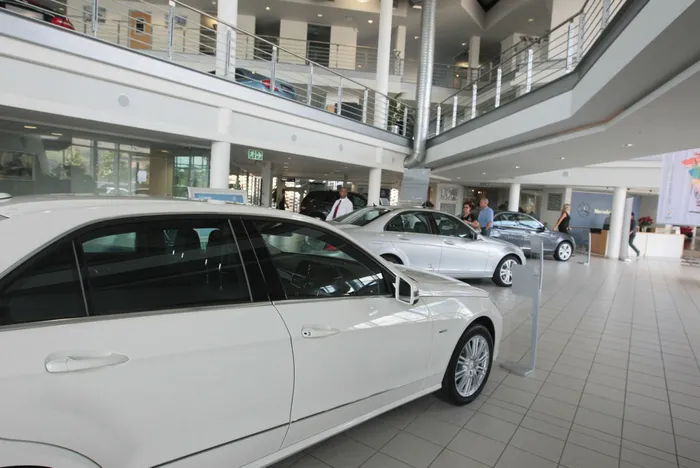Rate hikes, economic woes throttle South Africans’ purchase of new vehicles

Naamsa expects the domestic vehicle market to remain reserved for the greater part of 2023. Photo: Simphiwe Mbokazi (ANA)
The expected increase in the cost of borrowing in South Africa with another interest rate hike will exert further pressure on vehicle buyers in 2023.
This comes as the impact of economic stagnation, rising inflation and high interest rates has started to cripple South African consumers’ buying power as new vehicle sales fell for the second consecutive month in April.
The Automotive Business Council (Naamsa) yesterday said the aggregate domestic new vehicle sales in April fell slightly by 0.2% year-on-year to 37 107 units, from the 37 195 vehicles sold in April last year, reflecting a decline of 88 vehicle units.
This comes after domestic new vehicle sales fell 0.6% in March at 50 157 from the 50 465 new vehicles sold in the same month a year ago, reflecting a decline of 308 units, throttled by the effects of interest hikes, the Human Rights Day holiday, and the national shutdown.
Naamsa yesterday noted the continued constraints as a result of ongoing subdued economic conditions, with high interest rates impacting on a shrinking disposable income purse.
South Africa’s real economic growth is expected to decelerate sharply to 0.1% for 2023 due to load shedding, among other related supply shocks.
Naamsa said these observed economic turbulences and the record high headline inflation were likely to trigger a further SA Reserve Bank (SARB) Monetary Policy Committee interest rates hike in May.
“For this reason, Naamsa expects the domestic vehicle market to remain reserved for the greater part of 2023,” it said.
Last month, the SARB surprised the market when it hiked the rate by 50 basis points, increasing the repo rate to 7.75% and the prime lending rate to a 14-year high of 11.25% after headline inflation remained sticky at 7.1%.
Noting the importance of domestic investment to enhance economic growth and generate full and productive employment for the country, the automotive industry pledged substantial investments to President Cyril Ramaphosa’s 5th SA Investment Conference last month.
These investments will have specific focus on renewable energy projects, vehicle production, infrastructure and industrial zone developments.
WesBank head of marketing Lebo Gaoaketse acknowledged that the potential for new vehicle sales remained throttled by general economic uncertainty, rising interest rates, and inflationary pressures that are increasing the burden of household budgets.
Gaoaketse said the latent demand for vehicle replacements existed, but the willingness to commit limited ultimate sales.
He also noted that the demand for vehicle finance was predominantly in the new vehicle market and not for pre-owned cars and bakkies.
“Applications for new vehicle finance at WesBank increased over 9% year-on-year, yet market sales remained flat during April. Applications for finance of used vehicles – albeit twice the volume of new vehicles – was unchanged year-on-year in the bank’s book.
“With a further interest rate hike expected during May in an effort to curb high inflation, the impacts that are throttling the market should be expected to continue for some time,” he said.
“Consumers should be carefully considering their vehicle requirements within their affordability to manage their budgets – and responsibly limit their indebtedness.”
Though the aggregate domestic new-vehicle sales declined slightly in April, the combined 175 678 units sold means there was an increase of 1.3%, or 2 291 units in the year-to-date for April 2023 compared to the same period last year.
However, Toyota South Africa Motors senior vice-president of sales and marketing Leon Theron said despite the reduced trading days in April due to public holidays and long weekends, he was delighted with the dealers' performance.
“As we know, a protracted month like April is always difficult. Nevertheless, everyone has been working around the clock to ensure stock is delivered timeously,” Theron said.
“To sell 9 423 sales in just 17 days is a great achievement and is only possible due to the commitment of every single staff member, from the executives to those in the wash bay.”
BUSINESS REPORT